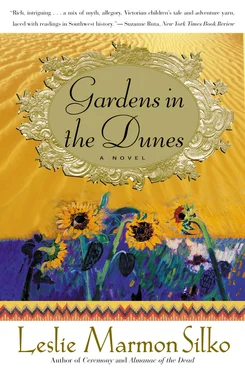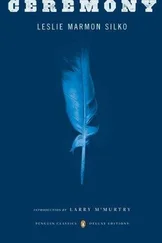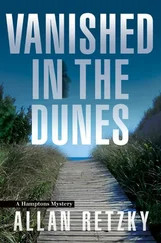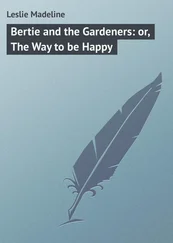They would have a wonderful time together. She had so much she wanted to show them — the new excavations of the Roman temple at the hot springs and a stone circle west of town about to be restored were only two of the outings Aunt Bronwyn had planned. The excavation was yielding a great many interesting artifacts of considerable antiquity.
“I’d like very much to see that,” Edward said, turning from the coach window, his expression alert.
Hattie was relieved to see Edward perk up, because he seemed rather preoccupied throughout their ocean crossing. She knew he would have preferred to go directly to Italy, but now the promise of the excavations with old Roman artifacts made their stop in Bath worthwhile.
Edward had visited England before, but he still was amazed at the grand old oaks and elms amidst lush meadows and fields of flowers on the alluvial terraces of the rivers. Susan with her Scottish gardener, troops of workers, and Colin’s money might labor for years, but Long Island would never appear as lush, green, and wooded as southwest England.
Here the moist air filtered the sunlight to create a lovely green-blue glow that transformed everything. Edward recalled how lovely Bath was, enclosed on three sides by the meandering Avon. Years before when he visited Bath, he had not bothered with the parks or formal gardens where ladies and their maids strolled under parasols, followed by little dogs. His interest had been in the private clubs where gambling went on as it had since before the reign of Queen Anne. At the time, he believed he had developed a mathematical equation to predict winning hands in twenty-one, but quickly realized his error.
Today the Avon’s water appeared almost sluggish, due no doubt to the construction of weirs, built since medieval times to control flooding. Now the Avon at Bath was no longer a free-running river but a series of ponded lengths that overflowed at their downstream ends.
The coach emerged from the trees, and suddenly on the hills above the river grand villas of gray and pale yellow limestone in the Georgian style could be seen. The old walled city of Bath, built on the Avon’s old floodplain, was hidden by great oak and linden trees until they were quite near. Then suddenly the coach clattered across a narrow stone bridge and they entered the narrow twisting streets of buildings crowded together. The foundations and walls of a number of the oldest buildings rested on large hand-hewn limestone blocks Edward recognized as Roman in origin.
Aunt Bronwyn explained they were taking the old road into the town to avoid what she called “ghastly faux colonnades” the city fathers added some years ago when they widened Bath Street.
Edward was a bit startled by Aunt Bronwyn’s remark since popular opinion regarded old Bath as among the most lovely cities in England. Down the side streets and alleys, Edward caught glimpses of the renovations ordered by Bath’s city fathers to replace old Bath Street, which was too narrow and twisted through a clutter of eighteenth-century structures, mostly tenements, crammed together willy-nilly.
Aunt Bronwyn sat back on the coach seat, her blue eyes shining with enthusiasm as she pointed out the site of the old town. The Romans built over the old Celtic settlement near three thermal springs, sacred to the ancient Celtic god Sulis. On gravel terraces of an ancient floodplain, hot springwater bubbled to the surface with medicinal and magical properties. The Romans, always wary of offending powerful local deities, prudently named their town Aquae Sulis. But the Romans could not permit Sulis to rule supreme any longer, so they built a temple with a great pool over the springs, dedicated to Sulis and to Minerva as well.
The coach slowed as it neared the center of old Bath, outside the Pump House Hotel, so they could see the location of the new excavations in the temple ruins at the spring. Of course they could not actually see the excavations, which were under way in the basement of the hotel, but piles of debris and large screens the archaeologists used to find artifacts in the debris blocked the narrow alley and a portion of Stall Street, so the coachman was obliged to squeeze the horses and coach past a stack of broken stones. A few fragments appeared to have been carved. Edward leaned half out the window to get a better look at a piece of stone carved with the petals of a flower.
Once they passed the baths and hotels, the municipal buildings of handsome pale yellow limestone — the post office and the railway station — came into view, followed by the ornate downtown buildings of new Bath. Aunt Bronwyn found the white and yellow limestone too bright — almost brazen.
Hattie and Edward confessed their “thoroughly American” admiration for the eighteenth-century buildings in downtown. Outside the shops, hanging baskets of geraniums, pinks, and petunias trailed cascades of bright blue lobelia.
Aunt Bronwyn dismissed modern Bath with the wave of her hand and did not look out the coach window again. She talked instead of the surrounding hills, where stands of ancient oaks were preserved since the time of the Celtic kings, only to be cut down now as earthmoving teams carved wide scars in the bellies of the hills overlooking the river. All around Bath, construction was under way for more mansions of gigantic misproportions built for business tycoons from London and Bristol. The threat to the remains of the ancient hill forts and stone circles at the summits of the hills along the river had pressed her into action years ago, even before her husband died. She shook her head. The people nowadays cared nothing about the old stones!
Edward and Hattie exchanged glances; he wanted to follow Mrs. Abbott’s advice to stay in a hotel rather than share the old Norman ruins with cattle and dogs. Hattie had loved the old cloister since she was Indigo’s age; Aunt Bronwyn’s feelings would have been terribly hurt if they went to a hotel. The last Irish terrier died some years ago; besides, it was too late to get a hotel — the summer rush of vacationers was on, and one could scarcely find space to move along the sidewalks outside the shops for all the visitors.
Bath’s glory days ended long ago with the laws that restricted gambling. Bath’s private clubs permitted gaming, so maharajas and foreign princes still were seen driving through the streets of Bath.
The coach approached an intersection where the left fork appeared to proceed along an old floodplain of the river while the right fork gradually ascended into the fashionable residential parkways up the hills. To Edward’s surprise, the coach turned left and then turned left again to double back toward the old town along the lush river bottom thick with elders and willows. Remnants of an old dry rock wall overgrown with mossy saxifrages and little ferns could be seen from time to time.
The narrow drive wound through the canopy of lindens and elders that filtered the sunlight to a golden green in a light cool breeze off the river. The old Norman abbey was taken down long ago; now only the old cloister with its walled gardens and the apple orchard remained. Ahead, tucked under great old live oaks and nearly concealed by hollies and hawthorns, was the old stone cloister that once sheltered Norman nuns.
“Oh this is lovely!” Hattie exclaimed. Indigo clutched the parrot cage closer as the coach bumped over a little bridge. Indigo thought no other place could have more trees or be more green than Long Island, but here was a place that had more and bigger trees, and hills far greener. Edward thought the location a bit too close to the river for comfort but he made no comment. Just then the coach slowed to a stop in front of a stone wall and two great iron gates. The coachman climbed down to swing open the great iron gates, then strangely did not proceed but stood there. Edward leaned out the coach window for a look and was surprised to see a white bull blocking the driveway in front of the gate.
Читать дальше












